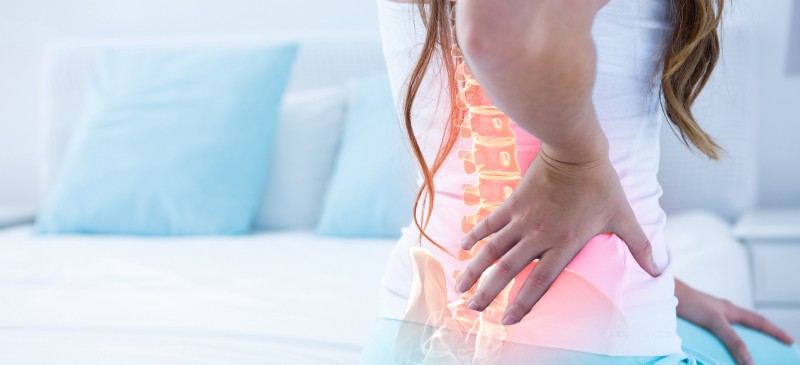This Dr. Axe content is medically reviewed or fact checked to ensure factually accurate information.
With strict editorial sourcing guidelines, we only link to academic research institutions, reputable media sites and, when research is available, medically peer-reviewed studies. Note that the numbers in parentheses (1, 2, etc.) are clickable links to these studies.
The information in our articles is NOT intended to replace a one-on-one relationship with a qualified health care professional and is not intended as medical advice.
This article is based on scientific evidence, written by experts and fact checked by our trained editorial staff. Note that the numbers in parentheses (1, 2, etc.) are clickable links to medically peer-reviewed studies.
Our team includes licensed nutritionists and dietitians, certified health education specialists, as well as certified strength and conditioning specialists, personal trainers and corrective exercise specialists. Our team aims to be not only thorough with its research, but also objective and unbiased.
The information in our articles is NOT intended to replace a one-on-one relationship with a qualified health care professional and is not intended as medical advice.
6 Degenerative Disc Disease Natural Remedies
September 24, 2018

If you’ve been dealing with back pain, you may be living with degenerative disc disease. What is it, how does it happen and can you reverse degenerative disc disease?
This guide has everything you need to know about the condition, including ways to relieve the symptoms with natural remedies.
What Is Degenerative Disc Disease?
Degenerative disc disease is when the discs between the vertebrae of your spine cause pain. (1) This usually happens as we grow older, as our discs begin to show wear and tear.
Disc degeneration happens in everyone, as the discs take damage from the general use of them over the years. Some people may not feel any pain at all from this process, but others may start feeling pain in their spine. The discs in your spine are made of a soft inner core and a harder outer shell, and the shell taking damage is what causes the pain.
Can you reverse degenerative disc disease? The answer is most commonly no, once the disc is damaged, it’s there for life. (2) However, with the right treatment and care, you can significantly reduce the symptoms of it.
Signs and Symptoms of Degenerative Disc Disease
How can you tell if you have degenerative disc disease?
There are a few symptoms you need to look out for. Mostly, you’ll start to feel pain somewhere in your back, and where you feel the pain in your back will depend on which disc has suffered damage. For example, you could feel pain in your buttocks, upper thighs, lower back or further up even into your neck.
The pain may be sharp, or nagging. It’ll come and go, and feel better when you get up and move around. It’ll feel worse when you’re sitting. It’ll also feel worse when you bend and twist.
As well as pain, you may experience numbness and tingling in your arms and legs. Many people worry, thinking degenerative disc disease can cause you to become paralyzed. In rare cases, it can happen. However, most often, degenerative disc disease surgery can be carried out to prevent this, so you’ll probably never have to deal with paralysis becoming a problem.
Can you die from degenerative disc disease?
Although the diagnosis can sound frightening, you don’t need to panic. You certainly cannot die of a degenerative disorder such as this one. (3)
Causes and Risk Factors
The most common of degenerative disc disease causes is aging. As you grow older, the protein and water makeup of your cartilage changes. That makes your spinal discs more fragile, subjecting them to more wear and tear. (4)
The more damage they take, the more likely it is that you’re going to start feeling pain in your back. The sooner you go to your doctor and get diagnosed, the better.
Inflammation is another cause that you need to be aware of. As the disc deteriorates, the inflammatory proteins can leak out into the spinal column itself. (5)
They cause swelling and muscle tension in the spinal structures, creating more pain in the area. In fact, inflammation can be seen as the cause of many different back and spinal issues.
Is degenerative disc disease hereditary?
There is some evidence to suggest that you can inherit a predisposition to developing a degenerative bone disease or disc disease. A study indicated that if you have a parent or grandparent with the disease, then you could be more likely to develop it yourself. (6) However, the scientists behind the study say that this may be down to environmental reasons, rather than genetics, and more research needs to be done.
Conventional Treatment
What is the treatment for degenerative disc disease? In most cases, any treatment undertaken is designed to relieve pain in the patient, and stop the discs from degenerating further and causing more problems later down the line.
In the first instance, patients are given over the counter pain relievers, such as ibuprofen, in order to combat the pain. Ibuprofen is often recommended as an anti-inflammatory agent. If you need stronger pain relievers, a doctor may prescribe them for you. (Meanwhile, please be aware of the side effects of NSAIDs (nonsteroidal anti-inflammatory drugs).) You may also be given medication for back spasms, if your degenerative disc disease is causing them.
Alongside pain relievers, you may be assigned to receive physical therapy. These will often be designed to strengthen the muscles in your back and neck, as degenerative disc disease in the neck can be quite common. With strengthened muscles, your spine will be better supported, and you’ll feel less pain overall.
Degenerative disc disease treatment can sometimes include steroid shots. These are most commonly administered into the epidural space in your back, or a nerve or muscle, depending on where the pain is. Your doctor would be able to tell you if this treatment is right for you.
Finally, if these methods aren’t working, then your doctor may recommend surgery. (7) This can be done to remove the damaged part of the disc, taking the pressure off your back and relieving pain. If the disc is particularly damaged, then they may even remove it entirely and insert an artificial one.
Can a degenerated disc heal on its own?
Unfortunately, no. (8) Once you’ve been diagnosed with degenerative disc disease, then you’ll be living with it for life. The good news is that there are options for treating the symptoms. Many people today live their normal lives with the disease, using a combination of treatments that help them manage the symptoms.

6 Natural Remedies for Degenerative Disc Disease Symptoms
Alongside the conventional methods listed above, there are a number of natural remedies that can help with the symptoms of degenerative disc disease.
Here’s some that you can try for yourself, if you’re looking for natural ways to ways to cope with the disease.
1. Stay active
As mentioned earlier, you’ll often feel less pain if you’re up and moving about. Making sure you’re taking regular exercise, which can also work for degenerative joint disease, can ensure that your muscles stay strong, helping support the spine and reduce pain.
2. Promote collagen production
Collagen is essentially the ‘glue’ that holds our bodies together. It’s essential in spine health as it helps promote the health of your spinal discs and vertebrae, keeping them working together as they should.
One good way of promoting collagen production in your body is by drinking bone broth or using a protein powder from bone broth. This broth contains all the nutrients you need to rebuild collagen levels and is often recommended to those with herniated discs or degenerative disc disease. (9)
3. Maintain a healthy body weight
As you can imagine, the more weight you’re carrying, the more pressure you’re putting on your joints and spine that are already delicate. If you’re carrying extra weight, now’s the time to start trying to move it.
A well balanced diet and more movement are key here, as you’re looking to make a long term change, rather than drop weight drastically.
4. Eat the right foods
The nutrients you take in will have a massive impact on your health. As mentioned in point 2, collagen production can be improved if you eat the right foods.
You can also improve your body’s natural anti-inflammatory agents if you pick the right diet. Anti-inflammatory foods such as fresh vegetables, whole fruits, and probiotics can help you reduce your pain naturally.
5. Try natural painkillers
There are plenty of ways you can relieve the pain in your back without taking over the counter pain relievers. I’ve even written an article all about natural painkillers.
For example, why not try essential oils? Peppermint oil is known to help reduce pain, so give them a try rather than reaching for the painkillers. Epsom salt is another great option, as it helps reduce inflammation. Try taking a bath in warm water and Epsom salt, and you’ll feel the difference.
6. Use cannabis oil
Cannabinoids have been found in a study to inhibit the neural pathways when it comes to pain, making them an effective pain reliever. (10)
Cannabis oil is the best way of trying out this treatment. If you do buy cannabis oil, make sure you’re buying it through a reputable seller, and only buy pure oil.
Degenerative Disc Disease Prevention
If you want to avoid degenerative disc disease treatment, then you can take some precautions to reduce the damage to your spinal discs. There’s no sure fire way to avoid the disease altogether, as the main cause is aging and there’s no real way to stop your discs from aging as well. However, you can certainly help reduce the rate at which they age.
You can make lifestyle changes which will improve the general health of your back. These include buying a supportive mattress for your bed, changing sleep positions regularly and getting up from your desk often in order to move around. (11) Avoiding smoking, eating a healthy diet and maintaining a healthy weight can also help.
Exercise is also crucial to helping you maintain a healthy back. Moderate exercise for 30 minutes a day will help you strengthen your muscles, support your back and reduce damage.
Precautions
As with any degenerative illness, you should always consult with your doctor before trying any new treatment. Natural remedies, when used in conjunction with conventional treatments, will ensure that you have a full and meaningful life with degenerative disc disease.
Getting a proper diagnosis before you begin treatment is also important. Ensure you know exactly what your condition is, before you attempt to treat it yourself.
Is degenerative disc disease considered a disability? In most cases, the answer is no. If your disease can be treated with exercise and pain relievers, and you’re able to carry on working in the same way you were before, then you won’t qualify for disability.
You will qualify if the disc degeneration limits you ability to walk normally, affects the range of motion in your spine, or limit the time you spend standing or sitting to two hours or under. (12)
Final Thoughts
Degenerative disc disease is an illness that can have a serious impact on you and your lifestyle. However, if you take precautions and treat symptoms well, you can have a normal life with it.
- Degenerative disc disease is characterized by the breakdown of the discs in your spine, causing pain and limiting movement.
- The pain can be anywhere in your back, depending on the disc that’s damaged. It can go from anywhere from your buttocks to your neck.
- The most common cause of degenerative disc disease is aging, and so there’s no one way to stop the disease developing.
- Conventional treatments include over the counter pain relievers, physical therapy, steroid shots and sometimes surgery.
- Lifestyle changes and exercise are the best way to reduce the damage done to your discs.
There are natural remedies aimed at treating those with degenerative disc disorder. These are:
- Staying active and fit
- Promoting collagen production
- Maintaining a healthy body weight
- Eating healthy foods
- Trying natural painkillers
- Using cannabis oil
With these remedies and the help of your doctor, you’ll be able to reduce the symptoms of degenerative disc disease, and live a normal and healthy lifestyle.








